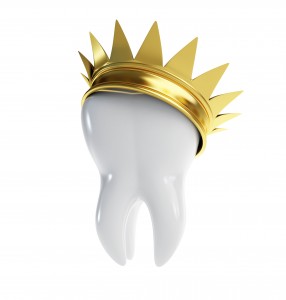Researchers suspect antimicrobial molecules contained within green tea helps preserve teeth (as long as you don’t add sugar).
- People aged 40-64 who drank one cup of green tea a day were less likely to lose teeth.
- Drinking unsweetened coffee had no effect on keeping teeth.
- Antimicrobial molecules called catechins may account for green tea’s benefits.
A cup of green tea a day may keep the dentist away.
That’s the finding of new research published in Preventive Medicine. The findings show that drinking at least one cup of green tea a day increases the odds of keeping your teeth as you age.
The researchers suspect that antimicrobial molecules called catechins present in green tea and in lesser amounts in oolong tea provide the benefit. But be careful if you like your tea with sugar: sweetener may negate the effect, the team found.
“Green tea may have bacteriocidal effects, which would affect teeth, but only if you drink it without sugar,” said Alfredo Morabia, of Columbia University in New York and editor of Preventive Medicine, who wrote an editorial accompanying the new research.
“They also reported that drinking sweet coffee was actually deleterious,” he added. “Coffee alone had no problem, but sweet coffee would actually make you lose your teeth.”
Yasushi Koyama of the Tohoku University Graduate School of Medicine and colleagues looked at more than 25,000 Japanese men and women between age 40 and 64 in making the determination.
They found that men who drank at least one cup of tea a day were 19 percent less likely to have fewer than 20 teeth (a full set including wisdom teeth is 32) than those who did not drink green tea. Tea-drinking women had 13 percent lower odds.
One possible explanation for the benefits of tea drinking is that warm drinks wash out your mouth. But coffee, which also provides a mouth rinse, had no benefit, suggesting something else is going on.
Catechins have been shown to kill mouth bacteria associated with tooth decay and gum disease, so the researchers suspect this is what gives green tea its dental benefits.
“Previous research has indicated that regular consumption of green tea may lead to a lower instance of periodontal disease, a leading cause of tooth loss in adults,” said Samuel Low of the University of Florida College of Dentistry and President of the American Academy of Periodontology in a statement to Discovery News.
Maintaining healthy teeth and gums is part of maintaining a healthy body, Low said. “That is why it is so important to find simple ways to boost periodontal health, such as regularly drinking green tea — something already known to possess certain health-related benefits.”
By, Jessica Marshall at dentist.net
 There could be any number of reasons for why you’ve lost confidence in your smile. You could have a tooth that’s been chipped for as long as you can remember. Or maybe one that cracked suddenly during a meal. It’s even possible t you have old metal fillings that are starting to deteriorate.
There could be any number of reasons for why you’ve lost confidence in your smile. You could have a tooth that’s been chipped for as long as you can remember. Or maybe one that cracked suddenly during a meal. It’s even possible t you have old metal fillings that are starting to deteriorate.
 Teeth can become stained for several reasons. One of the biggest is age, but certain beverages (like tea or coffee) can have a major effect, too, as can smoking and even certain medications. But with
Teeth can become stained for several reasons. One of the biggest is age, but certain beverages (like tea or coffee) can have a major effect, too, as can smoking and even certain medications. But with  Do you try to masque chronic
Do you try to masque chronic  If you snore at night or suffer from symptoms like irritability, difficulty concentrating, morning headaches, or daytime drowsiness, you may have
If you snore at night or suffer from symptoms like irritability, difficulty concentrating, morning headaches, or daytime drowsiness, you may have 